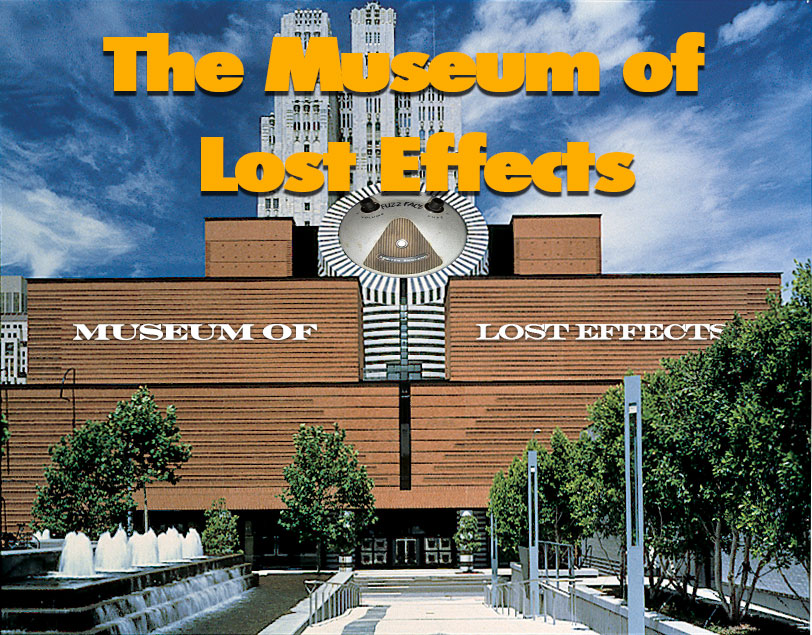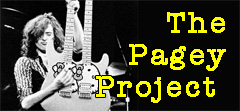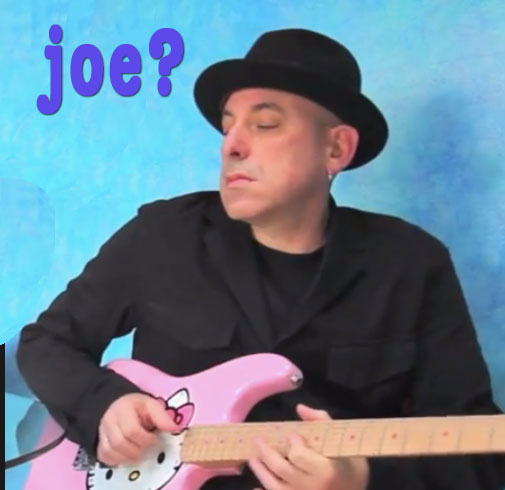
Excuse me, Mr. Beatle, but Scotland Yard would like to speak with you about your illicit treble content.
DISCLAIMER: I am not encouraging any illegal activity. Just sharing some observations.
Over the last few years, just about every musician I know has been spellbound by a series of illicitly leaked recordings. These files, sometimes lumped under the name “Multitrack Masters,” feature dozens of classic rock recordings, broken out into individual tracks. You hear isolated Beatles vocals, Queen guitar stems, Bob Marley rhythm tracks, Stevie Wonder keyboards, and much, much more.I don’t know how they came to be leaked in this form, though I’m guessing one or more sneaky remixers did the deed.
These recordings offer astonishing insights into how some of the 20th century’s greatest musical minds worked their magic. They provide valuable lessons that you can learn and apply to your own work today. They inspire endless discussion about the ways music performance and production have changed over the last few decades, and which of those changes are for the best.
And of course, it’s 100% illegal to have anything to do with these materials.
Before launching into a debate about whether that’s the way it should be, I want to draw a comparison to the classical music world. Classical musicologists pore over the manuscript scores of the great composers, dissecting every scritch and scratch in a centuries-long attempt to understand how their music came to be.
It’s not just a musical pursuit, but a psychological one. You don’t need to read a note of music to realize that Beethoven bled over every note he committed to paper:
On the other hand, Mozart had it all worked out in his head. He just had to slow down long enough to actually write things down.
The point is, studying the creative process this way means scrutinizing things the composers never intended you to see. Beethoven might not have wanted us to observe his desperate scrawls, but viewing them today reveals so much about the man and his music. This, I’d argue, is a good thing.
The Multitrack Masters files deliver similar insights. Some things I’ve learned:
• Jimi Hendrix sometimes recorded guitar overdubs consisting of short, isolated stabs and ornaments. Some of those impossible-to-transcribe tracks suddenly became clearer.
• Some Beatles guitar tracks are blisteringly bright. Players would get canned from their bands if they tried to play that way today.
• Those awesome bass tones on late Bob Marley records aren’t so much about jacking up the lows on Aston Barrett’s J-Bass as surgically removing all the lows from some of the drums.
• The randomly timed delay effects on Stevie Wonder’s clavinet makes me think guitarists worry way too much about tempo-synched delay and modulation effects. Sometimes random is just funkier.
• I’m more convinced than ever that Keith did not play the solo on “Sympathy for the Devil.”
That’s just a few off the top of my head. The biggest takeaway of all, however, is how nowadays we devote so much attention to individual tracks that we forget to listen to everything in context. All these great songs are littered with sketchy intonation, loose rhythm, and general chaos. Soloed, some of the background vocals on Sgt. Pepper are screamingly out of tune. The bass, percussion, drums, and guitar on “Gimme Shelter” aren’t remotely locked in with each other. But have you ever wished those records were subjected to Auto-Tune or Beat Detective? Me neither.
Studying artifacts like these deepens our understanding and appreciation of the music and the people who created it. They can help make us better musicians. They’re our history. They’re our culture. They’re our consciousness.
And they’re illegal.
Some might argue that we have no right to witness things the artists never intended to share. I’m sympathetic to that argument—to a point. But how many years do we have to wait after Hemingway’s death to study his first drafts? After how many decades can we peek into Picasso’s sketchbook? How long does music belong to the musician (or more accurately, the multinational corporation that owns the musician’s record label and publishing house) before it belongs to the world?
Just asking.










If you can you should check out the Bohemian Rhapsody multi-track that’s floating around at the moment. It has the most elaborate vocal multi-tracking I’ve ever seen, incredible stuff! Really shows you just how good Freddie was.
Same goes for the Brian May guitar overdubs from “Killer Queen.” So precise, so perfectly intonated. The perfect fusion of rock and barbershop harmony!
Some of these recordings amaze you with their looseness — tracks that kill despite their imperfections. But the Queen stuff is so precise, it’s scary.
I say let it out. You can’t keep it bottled up anyway. It’s like saying I can’t have a tablespoon of oregano because that’s what is in Ragu (and before you jump on Ragu it ROCKED our meatball sandwhiches last night.!). There is nothing you can do to prevent the reverse engineering of music anymore than you can prevent people from tearing apart an iPhone or a Reese’s Peanut Butter Cup.
Unless it is something the artist “invented” to create something that they got a patent for – tough. On that note, however, you shouldn’t be able to make one cent off of it. No USING Stevie’s keys, Jimi’s mystery guitar hits, or the bass track off And Justice For All….(if there even is one). Otherwise, to me, it is just sound. I don’t think you can protect or prevent sound anymore than you can color (although Larry DiMarzio seems to have found a way).
Unless it is a specific pitch/rhythm/tone combination that obviously came from somewhere that was copy righted (like the guitar riff of Ain’t Talkin’ Bout Love in Tone Loc’s Wild Thing), have at it.
You can’t stop it, and no one is making money off of it as the original product – great. Knock your self out.
This makes me really want to hear Gimme Shelter Beat doctored!
I tend to agree, though I don’t claim to have anything approaching a definitive solution. Obviously, there is something very, very wrong about our copyright law, which has, IMHO, veered absurdly far in favor of the interests of corporate copyright holders and away from those of listeners/consumers. But regardless of the “moral” answer, I suspect Aceman’s right: It doesn’t really matter what any of us think the reality should be—there’s probably no stopping the free flow of information, which is why we’re having this discussion in the first place. And in the most general possible sense, I’m cool with that. 🙂
The Classic Album series is great legal high in this area. I’ve even enjoyed ones where I wasn’t a real fan of the album. Steely Dan’s Aja is particularly detailed in the breakdown of the tracks. For example, Walter and Donald play several guitar solos for Peg that were rejected before settling on the one we all know. Cool.
Can you share a link, Dan?
Here’s a link to the Steely Dan episode. You have to install a player to see the full episode: https://www.veoh.com/watch/v242044pCWxESzH?h1=Classic+Albums+-+Steely+Dan+-+Aja
Many episodes are up on youtube. Also, the dvd’s are available for purchase and I think most are on Netflix.
Thanks — I am SO checking that out! 🙂
It’s good! Actually, my favorite moment from all of them is in the one on Transformer where the session player explains that he came up with bass line(s) to Walk On The Wild Side merely to exploit a union rule quirk which would earn him extra money! Ahh, and here I thought it was all about art…
Naw — people in the classic rock era were just as much scumbags as we are today. 🙂
Great observations!
And I’m joining the ‘Keith didn’t play the SFTD solo’ club. My guess? Dave Mason, but with a slightly brighter sound than usual. They shared the same producer in Jimmy Miller and to my ears, Mason displayed a similar rhythmic sense on certain Traffic tracks. Of course I might be TOTALLY wrong…..
Well, I’ve never heard a the isolated tracks for “Sympathy.” And everyone knows Keith never really played anything like that solo anywhere else. But my epiphany came while listening to the soloed guitar part for “Gimme Shelter,” easily one of my two or three fave rock tracks ever. But the slow, wobbly, imprecise vibrato just doesn’t sound like the same set of hands that produced the blistering attack and hummingbird vibrato on “Sympathy.” Whereas Keith’s solo on the live version of “Sympathy” on Ya Yas absolutely DOES sound like the “Gimme Shelter” hand. Interesting guess about Mason. I was thinking Pagey. Not based on any factual knowledge, I hasten to add. Just too many years of listening to guitar players!
Also interesting: Jean-Luc Goddard was filming the sessions for “Sympathy,” which is one of the reason we know Keith played bass on “Sympathy” (aside from the fact that it just sounds like a guitar player playing bass). But apparently no cameras were running when that solo was tracked!
The last time I was playing in London, Keith was in the same hotel. I kept running into him and his bodyguard in the elevator. He actually looked sort of magnificent. Or at least a magnificent wreck, as opposed to just a regular wreck. Naturally, I was too chicken to say anything.
What you say makes a lot of sense and I share the love for ‘Gimme Shelter’, I get goosebumps by just thinking about this track…. For some reason, that blistering attack on ‘Symapthy’ always reminded me of Albert Collins (of course knowing it definitely wasn’t him!) but to my ears precious few players have that sense of ‘dead-on’ attack.
What made me think of Dave Mason was the kind of tone and attack he displayed on ‘Dear Mr. Fantasy’ but of course Jimmy Page is certainly a possibility I guess.
And I always thought that whoever palyed on ‘Sympathy’ also played the lead on ‘Stray Cat Blues’……certainly the sound is the same.
I thought that Mick Taylor did most of the leads during that era?
Nope, not during Beggar’s Banquet, when Brian was still alive and in the band. (Though by all reports, he wasn’t actually contributing much at that point.) Keith and Mick T. do play back-to-back solos on the live version of “Devil” from Ya-Yas. Anyway, the “Sympathy” solo doesn’t sound anything like Mick either.
I just played the song and I think you’re right about JP; especially after Jagger says, “Uh get down Jimmy!” just before the lick.
Funny about running into Keef in the hotel, and I know just what you mean. Funny-ish story: in 1998, I was working a t a small vintage guitar/hi-fi shop with an attached small studio and repair space. One chilly day, my boss (who lived next door) decided to stay planted on his couch, so I was alone most of the day. At one point, I had to, ahem, relieve myself, and being alone, this meant I had to take the cordless phone with me, and sure enough, someone called during, a nice, well-spoken English gent asking for directions.
About an hour later, a cab pulls up, and a middle-aged guy and a much larger, younger, surly-looking guy get out and come into the store.
As they walk in and say hello, I realize the older fella is the guy from the phone call earlier. There’s something familiar about him otherwise, but I can’t quite place what. He ends up spending about an hour or so checking stuff out, asking questions, yapping about gear with me, and somewhere around the time he’s debating with himself about picking up a mint Silvertone Twin Twelve I had (and deciding against it, because he “has a warehouse with ten or so of these already, back home”), I realize it’s Jimmy Page. He was in town on tour for ‘Walking Into Clarksdale’ with Robert Plant, playing here in Kansas City at the Kemper that night.
The best part is that he was looking me in the eye when I had that moment of realization, where he knew that I knew who he was, and this sort of smirk…but despite the 1,000,001 questions I immediately wanted to ask, I decided then and there to be cool and continue treating him as I had- like any other customer. He stuck around for another half-hour or so, we talked about turntables (we had a couple of really cool VPIs on hand at the time) and reissue Danelectros, he thanked me and left.
Fortunately for me, one of our regulars, Bob, had come in just before Page and his bodyguard arrived, or nobody would have believed me. My boss didn’t skip work for a good long while either!
Great story. I’ve never met Page, but everyone I know who has says he’s super-cool. 🙂
I think if you see The Rolling Stones Rock ‘n’ Roll Circus, when they play Sympathy, that it is pretty clear that Keith did play the solo. Why the skepticism?
I didn’t say Keith never soloed on the song—just that that the Beggars solo doesn’t sound like him. The Circus solo sounds an awful lot like the Ya-Yas one, and even uses some of the same prefab phrases. The tone, phrasing, vibrato, speed, intonation, attack, and note-shaping of the studio solo just just don’t sound like the same pair of hands.
The question about who played the solo on Sympathy For The Devil has been raised on ‘Yahoo Answers’, one of the replies was ‘uh, could it be, I don’t know, hmmmm……..SATAN!?!?!?!?!’
Well, why not, the 60s were a weird time to be sure, we all saw what happened in Rosemarys Baby didn’t we?
Another huge fan of the Classic Albums series here; my enjoyment only ever spoiled by thinking of all the great albums I’d love them to cover, but probably never will.
On the multitrack rips that seem more and more in circulation, I’ve often wondered if they came from the production of Guitar Hero/Rock Band – I’ve never actually played the games, but I believe a lot of tracks were remastered for them, and presumably need access to the different instruments so you can control them individually.
Yeah, someone else had suggested that too, and it makes sense. I’ve never played Guitar Hero/Rock Band, because I believe what I’ve heard from ever player who’s tried it: “real” musicians SUCK at it! 😉
But also, a lot of that stuff has been in limited circulation for years before that, for various sketchy remix projects. I remember a friend of mine doing some Who remix, and being astonished by how great the guitar sound was. And then he did some New Order remixes, and was equally astonished by how bad the vocal was. (Hey, I love New Order. But, you know.)
Is it possible the “Sympathy” studio solo was sped up a bit?
I have mixed feelings about this approach. The crass commercial part of me says “let’s dissect the sonic elements of a huge hit and then reconstruct it as closely as possible without using anything we could get sued for”. And I’m pretty sure people have done this. I’m not experienced enough with musical notation to “get it” by looking at the score.
The “lazy, I’m never going to get rich or famous from my music anyway” part of my mind says “hey just play music you like, have fun with it, and if you feel compelled to create something afterwards, go for it”. Undoubtedly some of those formative influences would come out in what I wrote anyway.
One approach is deliberate, while the other one “seems” accidental. I think they’re just different manifestations of the same thing.
That said, 10 or so years ago I DID make a recording that contains several explicit signature aspects of one of my favorite artists, done in a totally low-budget, full of mistakes, MIDI kinda way.
https://www.soundclick.com/player/single_player.cfm?songid=1570841&q=hi&newref=1
on the subject of the Classic Albums series; if you’re in UK, the episode on Queen’s Night At The Opera is on Sky Arts 1 tonight (Sat 15th Sept)